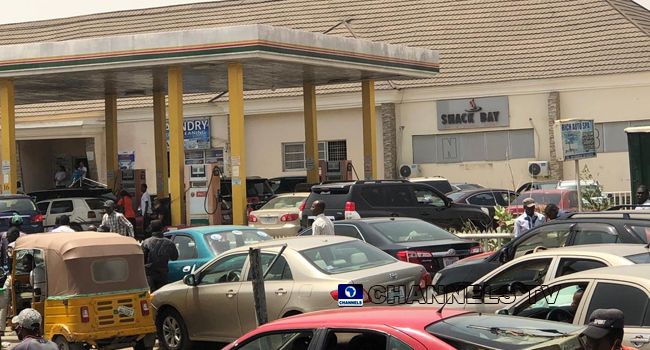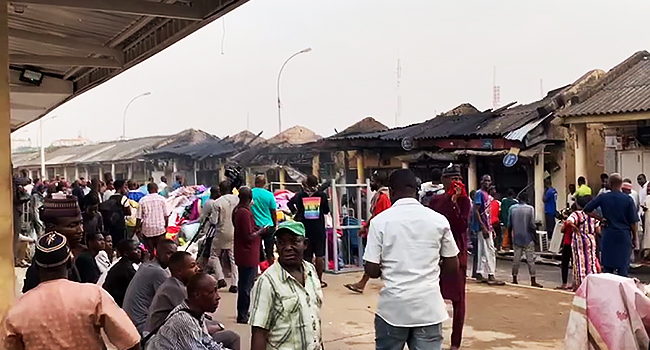
The Nigerian National Petroleum Corporation (NNPC) has assured residents of Abuja against panic buying of fuel, assuring that the agency has adequate supply despite the resurgence of queues in the city.
This is according to a series of tweets on the NNPC handle late Sunday.
“We assure all residents of the FCT, and indeed all Nigerians, that we have ample local supplies and national stock in excess of 2.5 billion liters, with a sufficiency of more than 43 days,” it added.
“The NNPC Ltd hereby advises motorists not to engage in panic buying as supplies are adequate as will become increasingly evident in the coming days.”
It explained the appearance of fuel queues in parts of Abuja “is very likely due to low loadouts at depots which usually happen during long public holidays, in this case, the Sallah celebrations”.
The statement added that the “increased fuel purchases which are also usual with returning residents of the FCT from the public holidays”.
READ ALSO: Buhari Condemns Zamfara Attacks, Asks Military To End Bandits’ Activities
The recent development is coming a few months after fuel queues resurfaced in the country due to the importation of “bad fuel” into Nigeria.
Lawmakers had then initiated a probe into the matter as calls came for those found guilty to be punished. The House of Representatives had then called on the NNPC to suspend the companies involved in the importation.
But in April, the lower chamber said nobody would be sanctioned over the supply of the adulterated product.
This was after it considered and adopted the reviewed report on the investigation by its Committee on Petroleum Resources (Downstream) which exonerated both the NNPC and the suppliers in the Direct Sale-Direct Purchase deal between the Federal Government and the importers.




